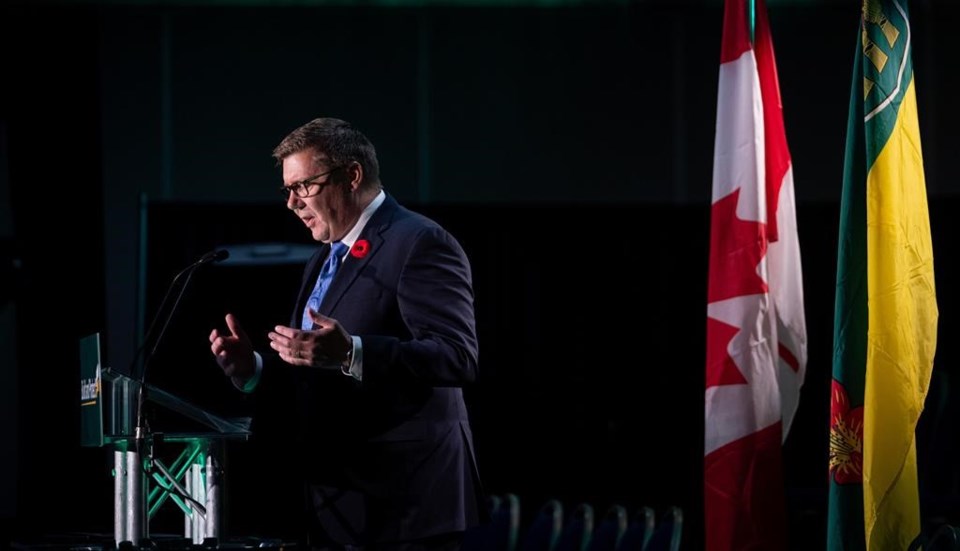REGINA — The Saskatchewan government's electrical utility is to remit carbon charges into a nuclear energy investment fund, the province announced Monday.
It said the fund could be used to help Saskatchewan deploy its first small modular reactor, and that carbon charges would also go toward clean electricity operating costs to keep power rates affordable.
SaskPower, which is the province's electricity utility, collects carbon charges from ratepayers, and the province has authority over how to invest the money.
"Nuclear is one, however, we haven't decided exactly what we're going to be doing yet," Environment Minister Christine Tell said in an interview.
"The carbon tax going into the fund will be used in support of ongoing developments and future investments."
Tell said she expects the province's fund to be flush with cash by 2030, in time for when the province may decide to build a small modular reactor.
"If we are looking at the possibility of having a (reactor) or two of them in the province, the cost is very hefty," Tell said.
"We want to make sure that we at least have the funds for whatever we decide to do, but also to keep people's power bills affordable."
The province said carbon charges from other heavy emitters are to be deposited into a separate technology fund for projects that reduce, sequester and capture emissions.
It said carbon revenues and expenses from SaskPower and other heavy emitters are to be tracked through the provincial budget.
Tell said the province won't be able pull money out of the specialized fund for other government expenses.
Last week, Saskatchewan announced it won't collect carbon charges on electrical heat starting Jan. 1.
The province said Monday those eligible are to see a 60 per cent reduction on the rate rider portion of their electricity bill, amounting to an average savings of $21 per month.
The government expects the savings will apply to 30,000 customers. It said it already knows which customers are eligible, but people can apply online for an exemption.
Premier Scott Moe has also said SaskEnergy plans to not remit natural gas carbon charges to Ottawa starting at the beginning of the year.
The move would break federal law, potentially resulting in fines and jail time for SaskEnergy executives.
The province's legislature unanimously passed a bill Monday that aims to shield executives from being punished and puts the burden on the minister.
"We're not at this point contemplating any challenges or costs or economic losses associated with this," Dustin Duncan, the minister responsible for SaskEnergy, said in the assembly before the bill was passed.
"Certainly, any piece of legislation brought forward by the province can be challenged. But we aren't contemplating that would be the case."
Erika Ritchie, the Opposition NDP SaskEnergy critic, said the party supported the bill because the Saskatchewan Party government assured it is legal.
"The legislation will likely only matter if the federal and provincial governments fail to act like adults and work together to deliver fairness for Saskatchewan people," she said in an emailed statement.
The federal government has said it expects all provinces to follow the law.
It says carbon pricing offers rebates, putting more money back into the pockets of most Canadians, and proceeds are returned to the provinces where the charges are collected.
Ottawa has exempted those who use home heating oil from having to pay the charges, a move Moe has said is unfair as it largely helps those in Atlantic Canada.
This report by The Canadian Press was first published Dec. 4, 2023.
Jeremy Simes, The Canadian Press



